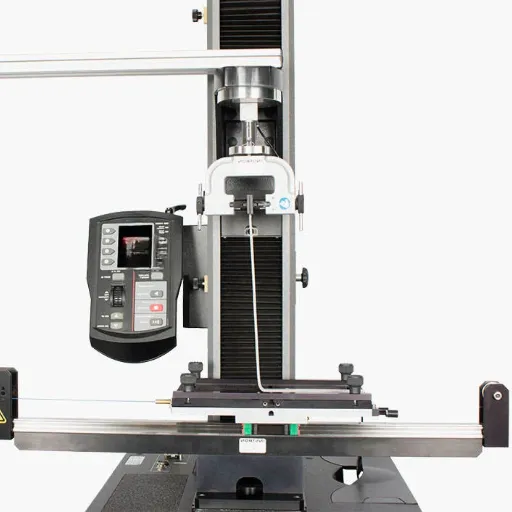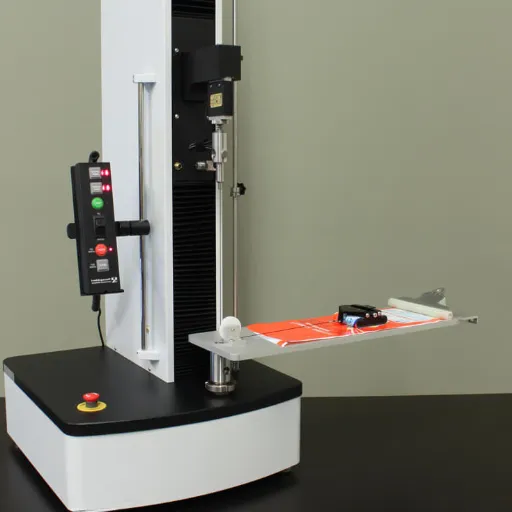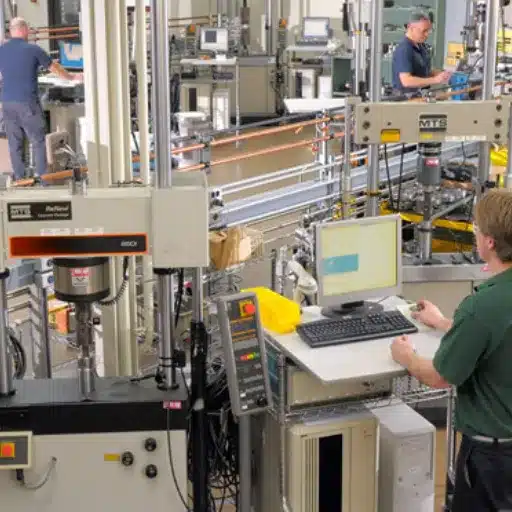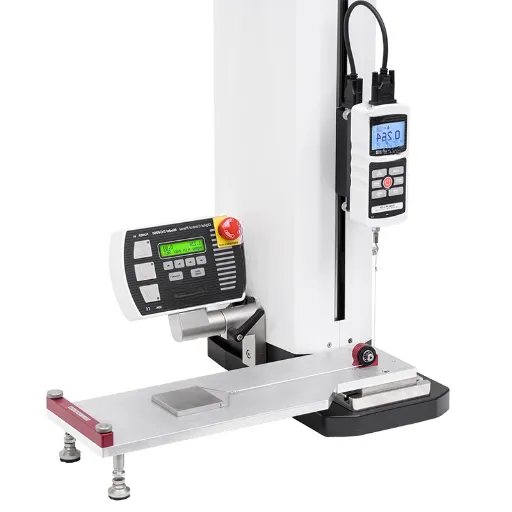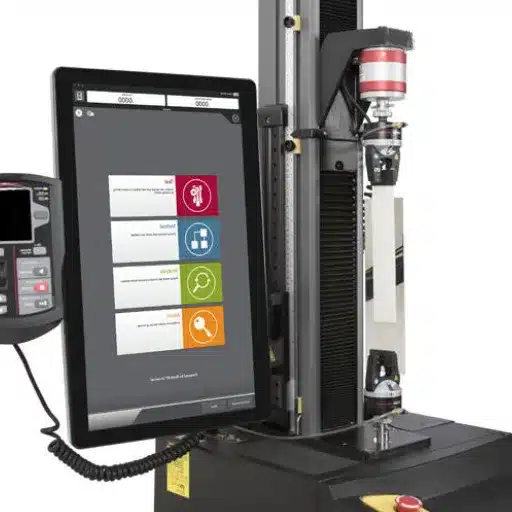Adhesive strength is essential to really test the efficiencies or reliability of film tapes across various industries—from packaging to electronics. To have consistent quality and achieve durability, precise testing is needed, and film tape testing machines dominate the scene. This article highlights the major features of these machines, methods applied, and their importance towards meeting industry standards.
Overview of Film Tape Testing Machines
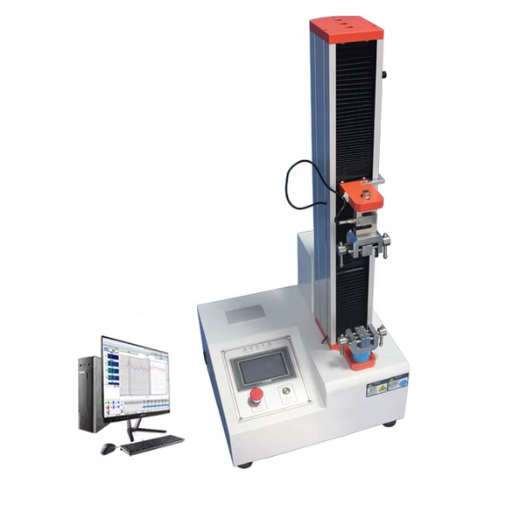
Film tape testing machines are unique, specialized instruments for testing the physical and adhesive properties of film tape. Tests are performed on tapes to measure:
- Peel strength – Force required to remove tape from a surface
- Tensile strength – Maximum stress tape can withstand when stretched
- Shearing force – Resistance to forces applied parallel to the surface
These tests simulate real-life situations to ensure utmost accuracy and consistency in measurements, enabling manufacturers to establish the durability and reliability of tape for its proposed end use. Their application is deemed very important in the packaging, electronics, and automotive industries where product function and safety depend on tape performance.
What is a Film Tape Testing Machine?
Film Tape Testing Machines are specialized equipment designed to examine the mechanical and adhesive properties of film tapes under given conditions. These machines employ advanced testing methods capable of determining critical parameters such as:
- Tensile strength and elongation
- Adhesion to substrates
- Peel resistance
- Shear performance
Key Technology Features: Modern machines utilize state-of-the-art sensors, automatic systems, and analytical software, ensuring testing is performed with the highest accuracy and repeatability. Integration with digital interfaces allows for real-time data collection and analysis.
Core Functionality of Adhesive Tape Testing Machines
Adhesive tape testing machines are designed to perform various tests that help determine tape characteristics. Using precisely calibrated load cells and automation, these machines test tape behavior under:
- Various mechanical stresses
- Different environmental conditions
- Simulated real-world applications
These machines ensure tapes comply with standards such as ISO, ASTM, and PSTC. Advanced versions may include programmable protocols and data analysis software that produce reports optimizing tape performance and durability for specific applications.
Importance of Adhesion and Peel Strength Testing
Testing for adhesion and peel strength is vital for assuring the reliability and performance of adhesive tapes in their suggested applications. The testing procedure involves measuring:
- Force required to break the adhesive bond
- Strength of the adhesive under various applied stresses
- Performance under different environmental conditions
This precise testing allows manufacturers to determine suitable formulations and identify potential adhesion failures before products reach the market. This is especially important for domains such as automotive, electronics, and healthcare, where adhesives have stringent performance requirements.
Industry Standards Compliance
Adhesion and peel strength tests validate conformity to international standards including:
- ASTM D3330 – Standard Test Method for Peel Adhesion of Pressure-Sensitive Tape
- ISO 8510-2 – Adhesives — Peel test for a flexible-bonded-to-rigid test specimen assembly
- PSTC guidelines – Pressure Sensitive Tape Council testing protocols
Types of Tape Test Equipment
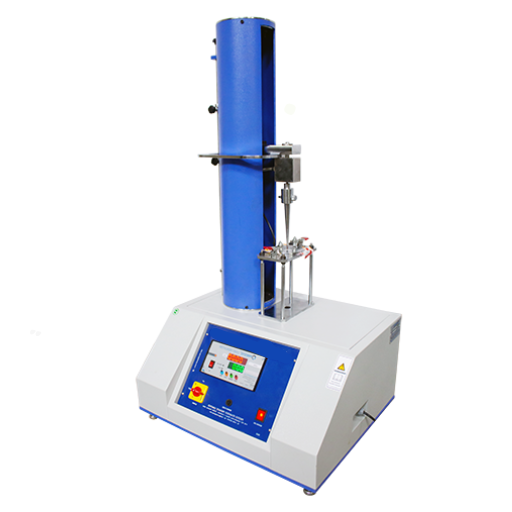
Various specialized equipment types are used for comprehensive tape testing, each serving specific testing requirements:
| Equipment | Function | Key Parameter | Usage |
|---|---|---|---|
| Peel Tester | Measures peel strength | Peel Force | Adhesion Tests |
| Adhesion Tester | Assesses bond strength | Adhesive Strength | Bond Durability |
| Tensile Tester | Tests tensile strength | Tensile Force | Material Pulling |
| Shear Tester | Evaluates shear strength | Shear Force | Stress Testing |
| Probe Tack Tester | Determines tack properties | Surface Tack | Adhesive Contact |
| Automated System | Conducts automated tests | Variable Settings | High-throughput |
Universal Test Machines for Adhesive Tapes
Universal test machines for adhesive tape are essential instruments capable of testing multiple mechanical and adhesive properties using standardized methods. These versatile machines can perform:
- Peel strength testing
- Tensile strength analysis
- Shear strength evaluation
- Tack property determination
Used across industries including packaging, automotive, and construction, these machines verify tape durability and performance under various conditions. Advanced universal test machines feature programmable test setups, highly precise sensors, and high-throughput testing capabilities designed for reliable and repeatable measurements in line with international test standards.
Key Benefits of Using Tape Testing Machines
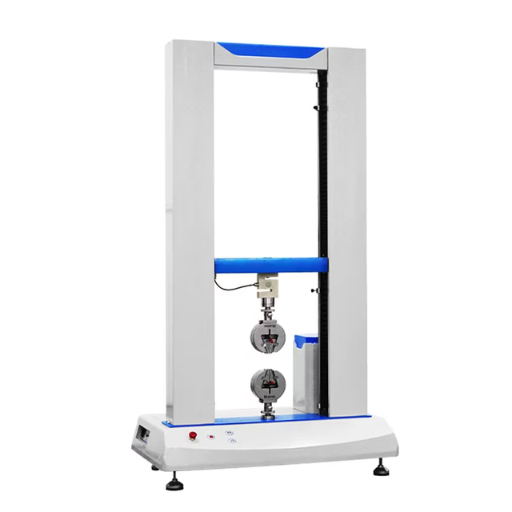
Primary Advantages
- Precise Measurement: Ensure accurate assessment of adhesive properties
- Standardized Testing: Adhere to industrial protocols (ASTM, ISO)
- Quality Assurance: Measure critical properties like adhesion strength and peel resistance
- Failure Prevention: Identify potential issues before product deployment
- Material Reliability: Facilitate tailored adhesive solutions across industries
Ensuring Product Durability and Reliability
Tape testing machines perform precise and reproducible measurements by simulating environmental stress conditions and testing performance parameters including:
- Adhesion strength over time
- Plastic strain resistance
- Wear characteristics under repeated use
Regular testing ensures materials meet rigid quality standards while providing functional checks to identify weaknesses. This is particularly important in electronics, automotive, and medical manufacturing where failures could mean safety risks or significant inconvenience.
Cost-Effectiveness in Testing Procedures
Tape testing machines offer cost-effectiveness through several key factors:
- Material Efficiency: Perform rigorous tests with minimal material wastage
- Reduced Manual Inspection: Automated processes increase efficiency
- Equipment Versatility: Test multiple materials with single equipment
- Long-term Savings: Reduce costs from product defects, recalls, and customer dissatisfaction
Applications Across Industries
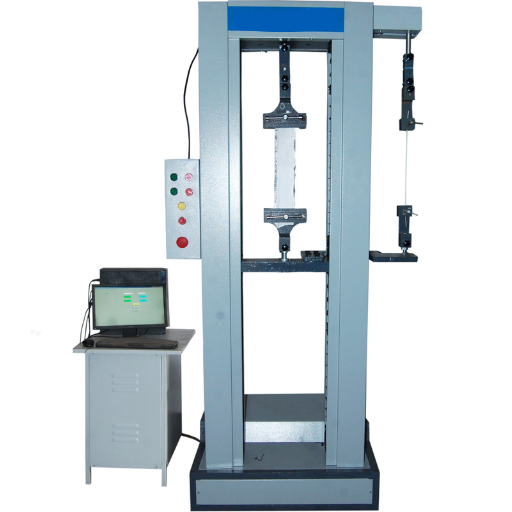
Film tape testing machines serve various industries, ensuring product reliability and meeting stringent quality standards:
Electronics Industry
- Test durability of adhesive films under environmental conditions
- Ensure integrity of critical electronic components
- Validate performance under operational stresses
Medical Industry
- Test adhesive efficacy in wound care applications
- Validate surgical tape performance
- Ensure medical device adhesive safety and patient outcomes
Automotive and Aerospace
- Test tape ability to withstand extreme temperatures
- Validate performance under pressure and wear conditions
- Ensure safety and performance in demanding environments
Packaging and Labeling
- Test adhesive strength for product presentation
- Ensure secure closures during transport
- Validate performance under varying environmental conditions
Latest Advancements in Film Testing Technology
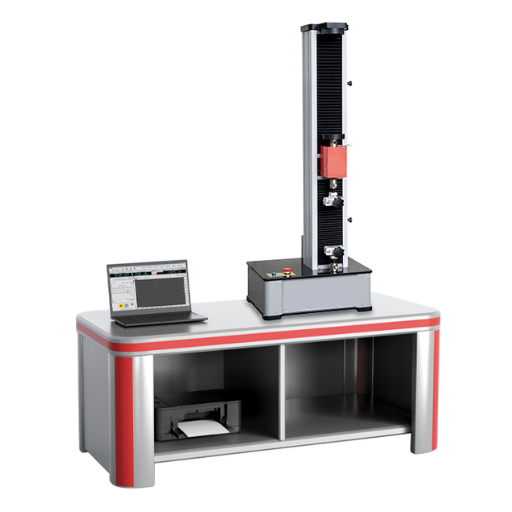
Modern advancements in film testing focus on automation, precision, and real-time analytics. Current innovations include:
- Advanced Imaging Systems: High-resolution defect detection
- AI Algorithms: Automated defect recognition and analysis
- Non-destructive Evaluation: Test without damaging samples
- Machine Learning: Adaptive testing methods for improved accuracy
- Predictive Analytics: Insights into long-term material performance
Integration of Automation in Testing Machines
Automation has tremendously increased efficiency and accuracy in testing processes. Modern automated systems feature:
- Robotic arms for sample handling
- Integrated software for real-time data collection
- Complex testing protocol execution
- High-speed batch processing capabilities
Future Trends in Adhesive Tape Testing
The future of adhesive tape testing will be driven by precision, efficiency, and sustainability considerations:
Technological Advancements
- AI and Automation: Predictive modeling and real-time process adjustments
- Non-contact Measurement: Laser-based and optical sensor systems
- Digital Twin Technology: Virtual performance simulation without physical testing
Sustainability Focus
- Testing protocols promoting recycling
- Environment-friendly adhesive evaluation
- Energy-efficient testing equipment
Global Standardization
- Enhanced conformity to international standards
- Seamless system integration across markets
- Improved global quality consistency
Frequently Asked Questions (FAQ)
What is a film-tape-testing machine?
Film-tape-testing machines are devices designed to test adhesive tapes for parameters such as adhesion strength, peel resistance, and tensile strength. These machines enable manufacturers to certify their products in accordance with testing requirements and quality standards.
How does a tensile testing machine work in tape tests?
Tensile testing machines pull the tape being tested until it breaks or deforms, measuring tensile strength and elongation properties. The machine provides data on force magnitude and tape elongation, helping assess adhesive tape performance under tension.
What is the purpose of performing a peel test on films?
The peel test determines adhesion strength for pressure-sensitive tapes. During testing, tape is applied to a smooth surface and pulled away at a specific angle. The measured peel force provides an indirect measure of adhesive properties under different practical field conditions.
What testing instruments are commonly used for adhesive tapes?
Common testing instruments include peel testers, tensile strength testers, and friction testers. These examine different properties such as peel strength, tensile strength, and coefficient of friction to verify adequate tape performance in intended applications.
What advantages does a microcomputer control electronic universal testing machine offer?
These machines provide greater precision and automation in testing processes, allow easy parameter adjustment, and offer comprehensive data analysis capabilities. This makes them excellent for film testing, peel tests, and material strength testing with enhanced reliability and efficiency.
What importance does the coefficient of friction have in tape testing?
The coefficient of friction dramatically affects pressure-sensitive tape performance during application and use. Low coefficients suggest easy tape movement, while high coefficients improve grip and reduce slippage possibilities. Understanding this property helps select appropriate tapes for specific applications.
What does a tape retention test involve?
This test measures adhesive tape efficiency in maintaining surface adhesion over time. Tape is applied to a substrate and exposed to varying temperature and humidity conditions to verify long-term adhesion. This helps manufacturers determine adhesive strength and practical usefulness.
How is the Dart Impact Tester used in Film Testing?
The dart impact tester measures film and tape impact resistance by dropping a weighted dart onto the sample. It determines impact force, providing data on film strength and durability. This testing is important for protective films used in packaging applications.
Reference Sources
-
Labthink – Adhesive Testing Equipment: Provides details on various adhesive testing equipment, including peel testers and their applications.
-
PackTest – Adhesive Peel Tester: Focuses on peel testers for pressure-sensitive tapes and labels, highlighting their importance in measuring peel strength.
-
ChemInstruments – Testing Devices: Offers a wide range of adhesive testing machines for adhesion, tensile strength, and more.
-
TestResources – Adhesive Adhesion Test Equipment: Features equipment designed for accurate and repeatable adhesive bonding strength testing.
- Top Film Tape Testing Machine in China

